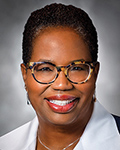If not you, then who? If not now, when? - The Role of Faculty in Redesigning Engineering Education
Category
Published on
Abstract
It was over 100 years ago that the Carnegie Foundation released the report “A Study of Engineering Education” by Professor Charles R. Mann. The purpose of study was, “to examine the methods of teaching and the preparation of young men [women] for the engineering professions”. More specifically, Professor Mann was charged with reviewing the pedagogy of the prior 50 years, examine the curriculum and methods of the time, and offer suggestions on the methods for simplifying the present courses of study.
Though a century has passed since the release of Mann’s report, some might argue that little has changed in how engineers are taught both from a content and a pedagogical perspective; that there is still too much of a reliance on teaching fundamental science in the first two years of the engineering curriculum and focusing on the applications of the science to theoretical and practical engineering problems in the latter two years. Since 1918 numerous additional reports have been issued and special issues of journals curated calling for reform in engineering education. These reports have described what needs to be done to make engineering more attractive to diverse populations; to prepare students to demonstrate breadth across subject areas, while establishing content depth in one area; to reorganize and streamline our curricula making it more engaging and relevant; and to deliver content using innovative pedagogical approaches where engineering students are encouraged to consider the impact of social, cultural, economic and the political factors.
It has never been more clear that colleges/schools of engineering and computer science need to make significant changes to both content and pedagogy. As the keepers of curricula and the architects of pedagogy, these changes must be led by our faculty. It is well-documented that change occurs slowly in educational settings; a pace that lags significantly behind technological changes. Yet we as academics continuously strive to create experiences for our students to prepare them for global competition. If we are to be successful in this endeavor, we must adapt to new trends and educational approaches so that our students are armed with the necessary tools for the world they will inherit and lead and not just the one that exists today. This presentation will describe: 1) the purpose research fulfills in transforming the overall educational experience, 2) ideas for engineering faculty (tenure track and professional) to partner with researchers from other disciplines to shape our field and transform students’ educational experiences, 3) how systems thinking can be used to transform education, and finally, 4) what we, the faculty, need to do for our students to ensure they are successfully launched into a professional world that is difficult to predict today.
Bio
 Dr. Stephanie G. Adams is the 5th Dean of the Eric Jonsson School of Engineering and Computer Science at the University of Texas, Dallas and Past President of the American Society of Engineering Education. Dr. Adams has held faculty and administrative positions at Old Dominion University, Virginia Tech, Virginia Commonwealth University and the University of Nebraska-Lincoln.
Dr. Stephanie G. Adams is the 5th Dean of the Eric Jonsson School of Engineering and Computer Science at the University of Texas, Dallas and Past President of the American Society of Engineering Education. Dr. Adams has held faculty and administrative positions at Old Dominion University, Virginia Tech, Virginia Commonwealth University and the University of Nebraska-Lincoln.
Dr. Adams research interests include: Broadening Participation, Faculty and Graduate Student Development, Teamwork and Team Effectiveness, and Quality Control and Management. In 2003, she received the CAREER award from the Engineering Education and Centers Division of the National Science Foundation. Dr. Adams is a leader in the advancement and inclusion of all in science, technology, engineering, and mathematics (STEM) education. She is the recipient of numerous awards including the 2013 Alumni Achievement Award from North Carolina A&T State University.
Dr. Adams is an honor graduate of North Carolina A&T State University, where she earned her BS in Mechanical Engineering, in 1988. In 1991, she was awarded the Master of Engineering degree in Systems Engineering from the University of Virginia. She received her Ph.D. in Interdisciplinary Engineering from Texas A&M University in 1998, where she concentrated on Industrial Engineering and Management.
Sponsored by
Cite this work
Researchers should cite this work as follows: